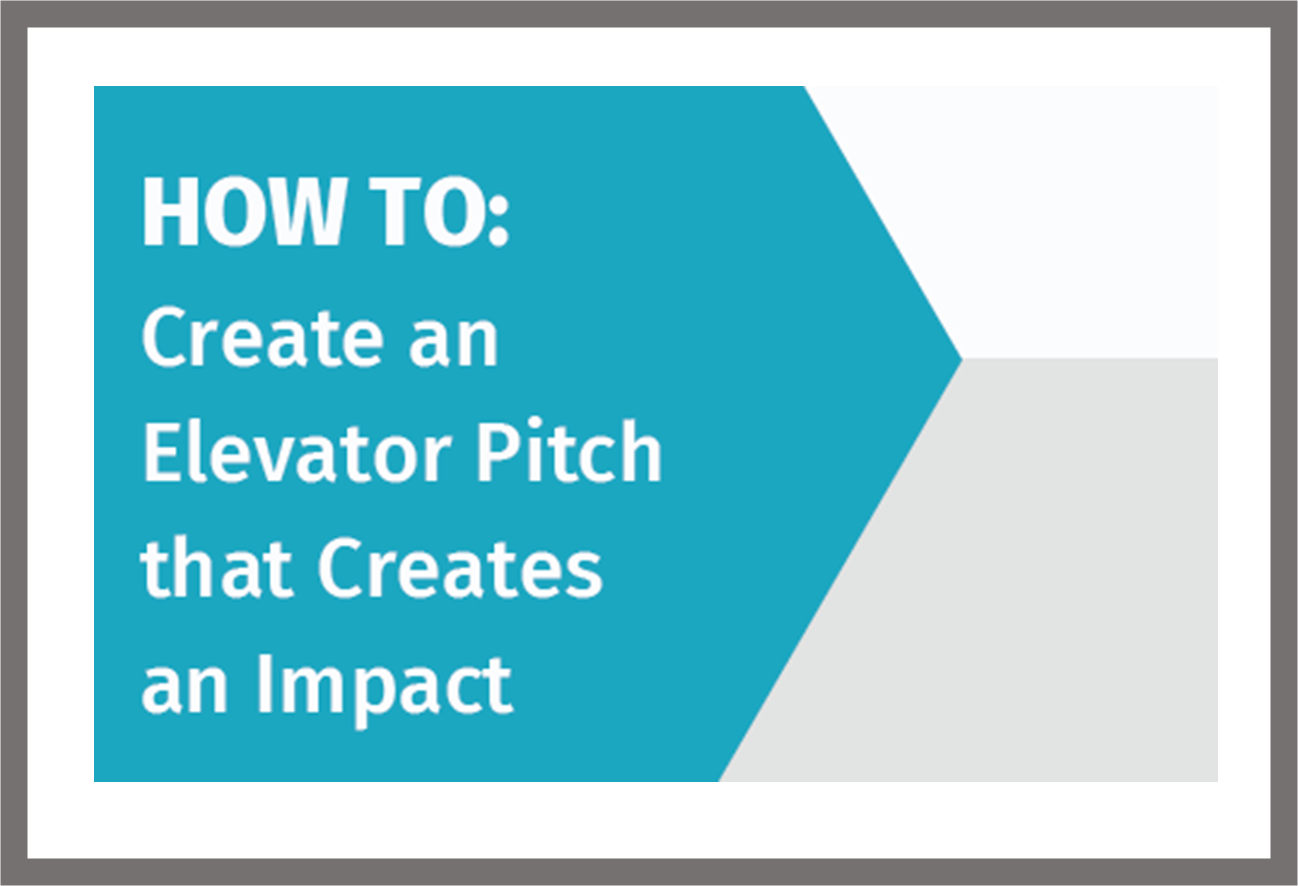
Career Coaching | Job Interview Coaching
Your elevator pitch is an introductory summary of you, your background, and your goals. It is an effective method to create a positive first impression and promote your personal brand as you build your network or in a job interview. You need to capture their attention, so they want to learn more.
It needs to be succinct at around 60 seconds or less. Remember to provide context to make the pitch relevant to them before talking about yourself. Present the problem that you or your solution solves.
Elements to include:
When you are specific and concise in your elevator pitch, you make it easy to transform your future job goals into resumes, cover letters, phone calls, and all forms of career planning.
e.g., ‘Many media companies struggle to attract new customers as they often too focused on delivery for existing customers. My specialty is in business development for media companies and their platforms’.
This is about demonstrating your experience and building on what you’ve done in the past. Talk briefly about a recent project you’ve been involved in, previous or current job roles, and interesting responsibilities you’ve had. Importantly, keep it relevant to the listeners and free from jargon and business-speak (if that’s not their language).
e.g., ‘I have developed a strong network in the industry and am comfortable with new business development and account management working with clients at all levels of seniority.’
You need to know what your unique qualities are and how they can benefit your listener. Your intention is to stand out from either other interview candidates or business competitors. Make sure you state the impact your uniqueness can bring.
e.g., ‘With a degree in media and 10 years’ experience networking in the industry, seeing first-hand how businesses operate, I have built a strong network and understanding of what matters to buyers’.
Be clear about what you want and align it with what the listener wants. Find out exactly what the listener wants, so your pitch can show how you can fulfill their needs.
e.g., Rather than saying ‘I’m a finance manager,’ you would say, ‘I’m a finance manager who enjoys rationalising finance teams in multi-unit businesses and creating metrics and operating procedures that partner with the business to drive understanding of the underlying levers of growth.’
Selling the benefits is not about including all the facts – just the ones that get your future boss excited.
Important points to remember: –
Practice your pitch out loud. Tweak it until it sounds natural and genuine.